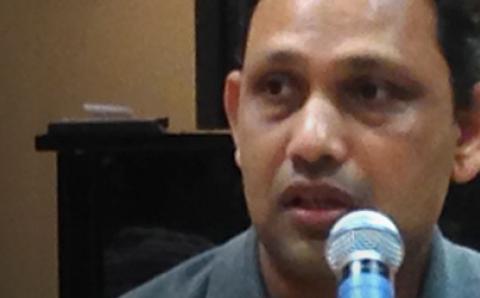While most of the country watched the unrest in Ferguson, Mo., from afar, it was close to home—literally—for those at Trinity Christian Reformed Church in St. Louis, Mo. Ferguson is just 11 miles from the church—a church that is 80 members strong, some of whom hail from Nigeria, Kenya, India, Russia, and Japan.
During the week of November 17-21, knowing that the grand jury was about to make a decision on whether to indict Darren Wilson, a white police officer who shot Michael Brown, an 18-year-old black man, the church leadership urged worshipers to read five psalms, fast, and pray each weekday at noon.
“I had coached people and said that just because we pray and want peace in our city, this might be the means that God uses to shake the city so people will start seriously bowing a knee to him,” said Rev. Gilbert Kamps.
On November 24 it was announced that the grand jury would not indict Wilson for his actions. The following Sunday Kamps preached a message titled “Baptism, Advent, and Ferguson” in response. In it, he encouraged parishioners to invite into their homes those who come to assist in the cleanup.
He also highlighted the need and possibility of beginning a Christian school and new churches to bring hope to a community where kids are afraid and act out of fear, where there is the loss of the family structure and few job opportunities. “The only way out of that is establishing hopeful communities,” he said. “I’m convinced the way forward is for local churches to have a passion to start new churches in their area.”
While members of the church have not been directly affected by the subsequent rioting in Ferguson, Kamps talked about how the congregation responded positively to the call to fast and pray for the community. “On a personal level, treat every person with dignity and respect because you’ve been treated that way by the Lord Jesus,” he said. “Then build relationships with people. One of our best tools is to practice hospitality and invite people to our home from different races, build relationships, and listen to them. That’s what we’re trying to do.”
About the Author
Melissa Holtrop









